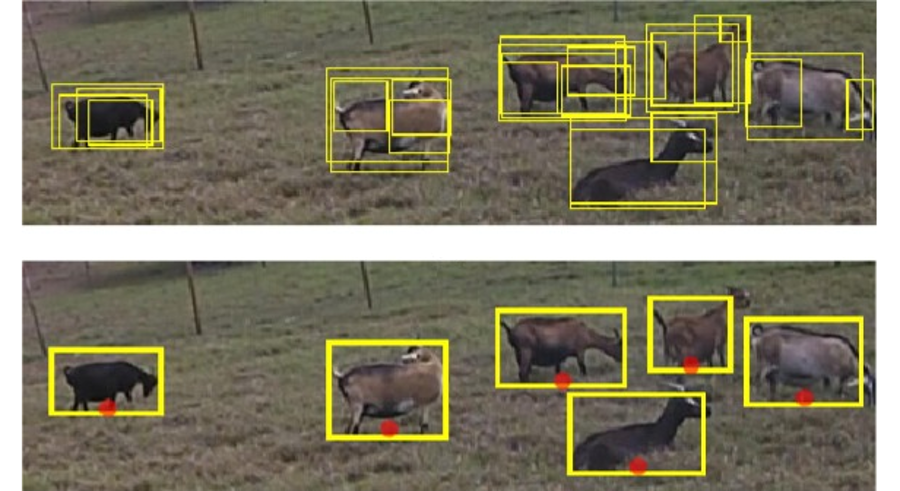Goats spotted and identified using a neural network to analyze time lapse video footage.
Time lapse video has many applications in the world of academia. A recent article by Mathieu Bonneau et al. entitled “Outdoor Animal Tracking Combining Neural Network and Time-lapse Cameras” was published in the Journal of Computers and Electronics in Agriculture. This article explored the usability of Brinno construction time lapse cameras (BCC100, BCC200, BCC2000) in research studies involving outdoor animal tracking.
The project involved monitoring a mid-sized tribe of goats in a pasture. The tribe of goats needed to be monitored for weeks on end and there were goats of various ages, sizes, and colors. In order to comb through the video data, the research team created a neural network that could smoothly analyze the images captured by BCC200 cameras and identify the locations of each member of the tribe.
Combining deep learning and time lapse photography to track animal movements in an outdoor environment provided the researchers with a non-invasive method of monitoring the location and behaviors of the goats. The researchers mention that there are many reasons to monitor animals and research their movements such as health and pasture management but up until now common monitoring methods required GPS monitoring with tags that are not only painful for the animal but also expensive and time consuming for the researcher.
“GPS tagging is not only painful for the animals but also expensive, Brinno time lapse cameras provide another option”
The researchers’ conclusion is that the main advantage of using Brinno time lapse cameras for research purposes is that they are affordable and can run for several weeks without needing a battery change.
If you are doing research in a remote or inconvenient location, you might not have access to electricity or have the ability to casually drop by and check on your cameras. Also the ATH series weather resistant housing from Brinno ensures that your camera can continue recording no matter the weather conditions.

The neural network identified each goat and plotted them on an easy to read map.
Brinno cameras provide researchers with a no nonsense time lapse solution that is reliable and cost effective. Collected data is clear and can be easily analyzed using a neural network. Other than animal monitoring, some examples of how Brinno cameras have been used in past research studies include traffic management, geological changes, and human behavior.
To find out more about Brinno’s time lapse cameras and what makes Brinno’s cameras the top option for researchers visit: www.brinno.com
If you are interested in reading more about Mathieu Bonneau’s research, you can find his article here: https://www.sciencedirect.com/science/article/pii/S0168169919322562


